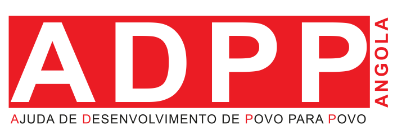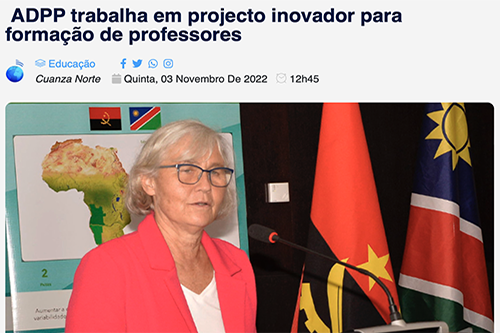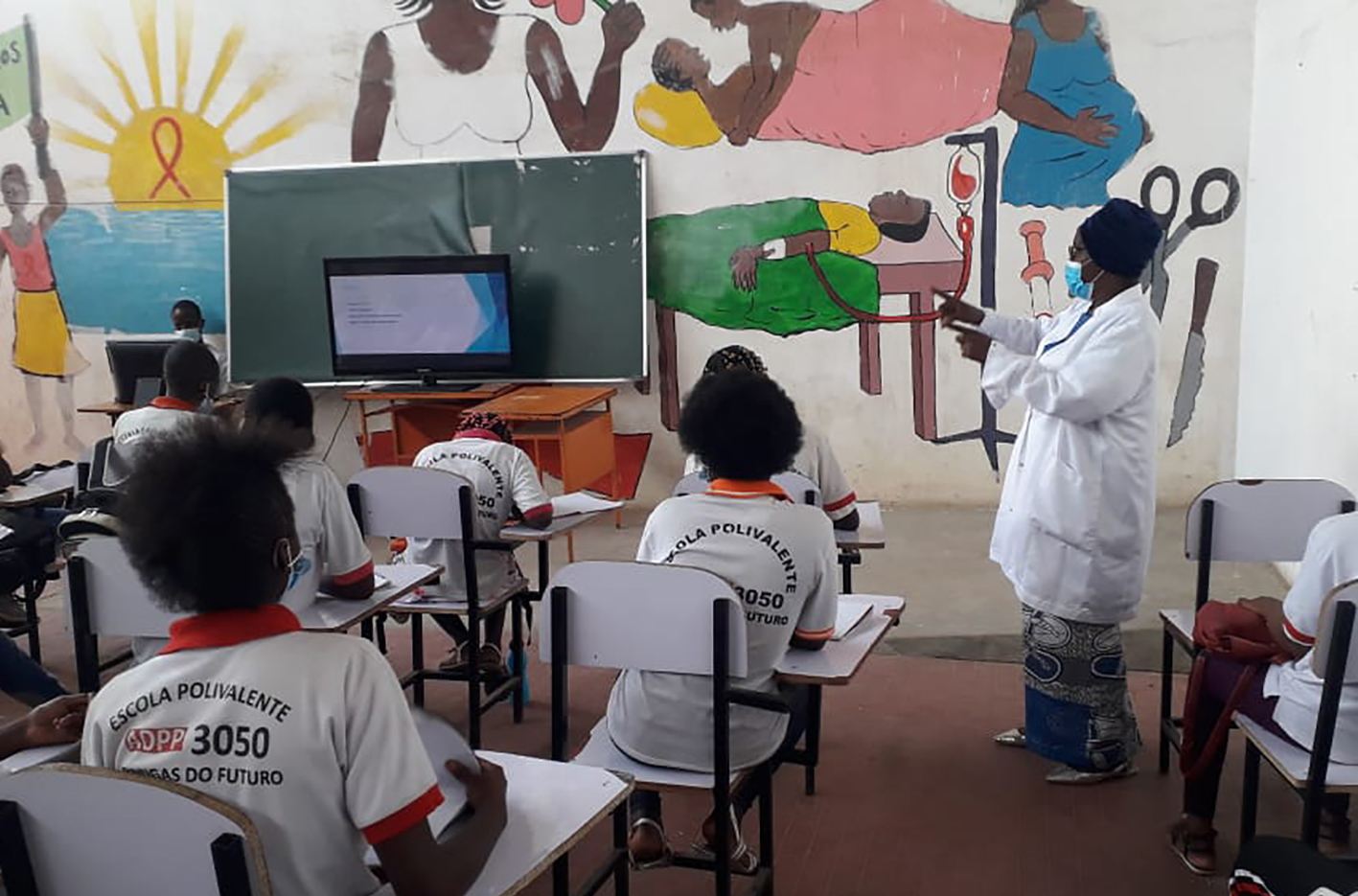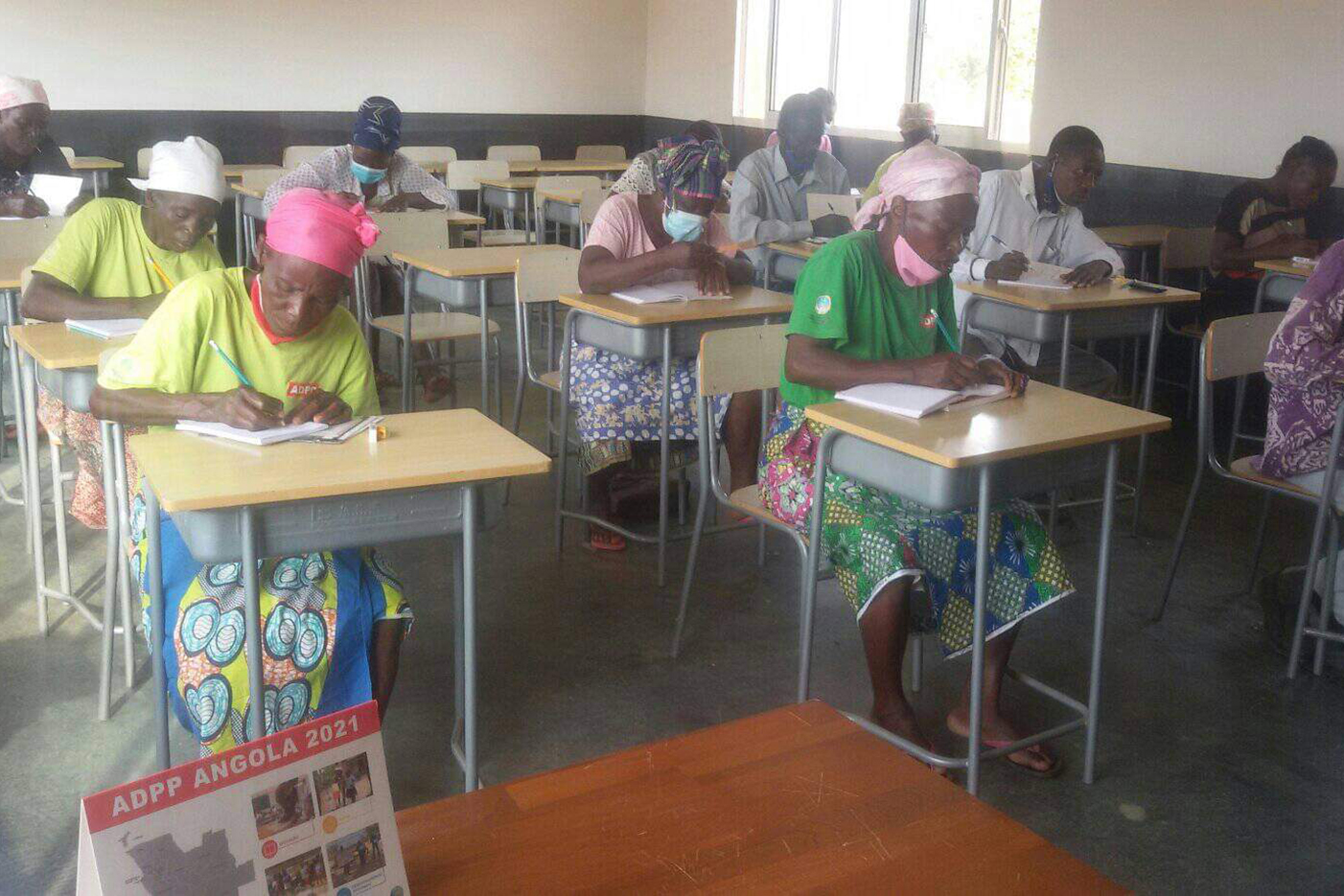Article on Angop, Cunene, 9 December 2022
Ondjiva - The deputy coordinator of the Human Rights Committee in Cunene province, Sara Tulikeni, called this Friday for people to denounce violations of human rights. Speaking to ANGOP about the International Day for the Defence of Human Rights, she said that denouncements are the best way to end impunity.
She explained that during the current year the committee registered only five cases of denunciation, of which two were homicides, two suspicions of human trafficking and one of physical aggression. She clarified that the homicides were committed by relatives of the victims, while the trafficking involved 24 young people transported from Cuvelai supposedly to work in a quarry and sawmill in Luanda, and a further 23 young people trafficked to Namibia. She said that thanks to the denunciations, the defence and security forces were able to carry out a rapid intervention.
She explained that the number of complaints does not reflect the cases of violations practiced in the region. “Many of the cases do not reach us and when we do hear about them, it is already too late, but for those that do reach us, we have been working with the relevant bodies to be able to hold the perpetrators accountable.” she said.
She admitted that many citizens do not know about the existence of this institution, which is why they are working on its promotion and dissemination. “The committee was created recently and more education and awareness actions are required in the communities, so that people develop the habit of reporting cases of violation. She said that the region has a provincial committee and six municipal committees, intending to take over the communal committees by 2023.
Students at ADPP Cunene Teaching Training School in Oifidi learned about the dignity of the human being, according to the universal declaration of human rights. The opening talk on the day to mark the 74th anniversary of the Declaration of Human Rights was aimed at raising awareness among the students about the need for prevention, safeguarding and promoting human rights. Speaker Neto Braga Tchipungo said that the action was aimed at promoting human rights, so that students have a body of knowledge on the subject. “The objective is to explain the basic notions of what a human being is, as a member of society and that in the event of violations they do not remain silent but help communities to denounce these practices. In the same vein, staff from the municipal command of the National Police of Cuanhama addressed aspects of “the right to affiliation as human rights.”.
The program also included a consultation visit to the inmates of the Peu Peu prison and a radio debate on the right to image and presumption of innocence.
International Human Rights Day was established by the United Nations on December 4, 1950, in order to celebrate the proclamation of the Universal Declaration of Human Rights, adopted on December 10, 1948.
Read the article in Portuguese here:
https://www.angop.ao/noticias/sociedade/populacao-encorajada-a-denunciar-violacoes-dos-direitos-humanos/
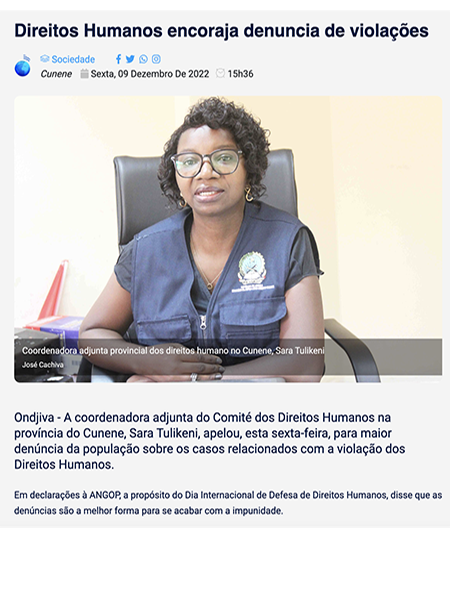
Article on Angop, Cuanza Norte, 3 November 2022
Ndalatando – A new professional training project and training for teachers in rural areas will begin to be implemented from 2023, in the municipality of Lucala, within the framework of cooperation between the agencies of Development Aid from People to People (ADPP) and the International Cooperation of South Korea (KOICA).
The innovative project includes distance training using Information and Communication Technologies, according to the chairperson of the Board of Directors of ADPP, Rikke Viholm, as part of a working visit today to the province. The project, which begins in Cuanza Norte province, will also cover Malanje and Úige. It is valued at six million US dollars and will be implemented over five years. KOICA has been collaborating with ADDP on the training of teachers and on professional technical training since 2009.
The first secretary and head of the Political and Economic Section of the Embassy of South Korea in Angola, Hyung Kwon Jung, explained that his country is an expert in the field of e-training and intends to share the experience with Angola. He added that KOICA cooperates with several African countries and in Angola it has already invested around US$200 billion in various projects, such as Innovation in Public Security, and Industrial Advanced Technology, in Luanda, as well as the modernization of the city from Sumbe.
ADPP has been cooperating with the Ministry of Education for 26 years and has trained 14,700 teachers for rural areas. Currently, in partnership with the Ministry of Education, it has 15 schools in 14 provinces. The organization also operates in the sector of literacy and empowerment of women in rural areas, which includes citizenship, financial inclusion and inclusion in the formal economy, and in the environmental sector, working towards the sustainable use of forest resources.
ADPP is an Angolan NGO. It was founded in 1986 and officially registered with the Ministry of Justice in 1992. It currently implements development projects in 17 provinces in the areas of education, health, community development, agriculture and others.
Before leaving for the municipality of Lucala, the delegation held a courtesy meeting, in the city of Ndalatando, with the acting governor of the province of Cuanza Norte, Mendonça Luís.
Read the article in Portuguese here:
https://www.angop.ao/noticias/educacao/adpp-trabalha-em-projecto-inovador-para-formacao-de-professores/
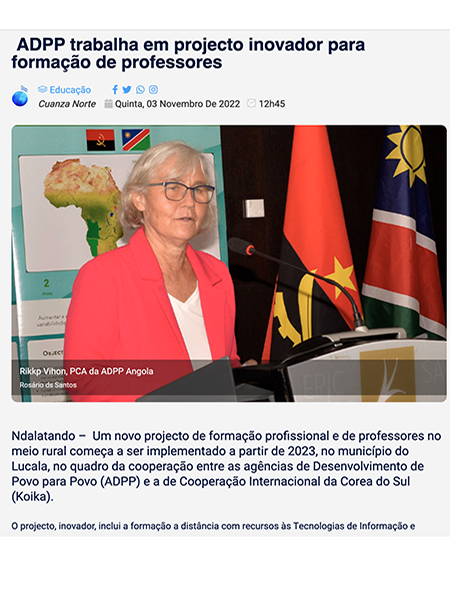
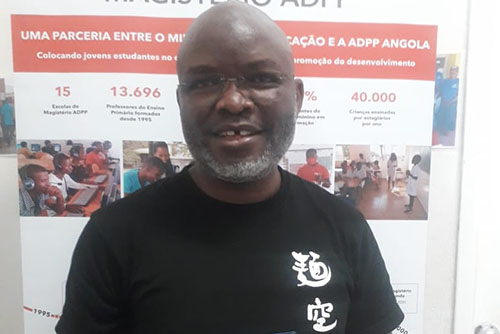
JICA, the Japanese International Agency for Cooperation in Angola, attached to the Japanese embassy, invited participants in the Updating Course on Education and Initial Training of Primary School Teachers - Japan's knowledge co-creation program, held from 17 August to 19 September.
The training that took place through the Faculty of Education at Hirosaki University was conducted with Modules on:
• The history of education in Japan and its system today
• Teacher Teacher Training (Initial and Continuing) in Japan
• Special education in the approach to inclusive education
• Career Management for Teachers
• Management of school centers
• Experiences from participating countries
At the end of the course, a network was established of participants who will take on thhe responsibility of implementation of the action plans presented here.
In this context, upon arriving in Angola, Walter Alexandre held a presentation organized by the INFQ with the aim of sharing such experiences based on initial and continuing training of primary school teachers. All the teaching schools in the country participated, in addition to technicians from INFQ, MED and a guest from JICA Angola.
At the moment, in Cuando Cubango, Missombo commune, arrangements are being made for the implementation of the action plan that will translate into working in a primary school with the intention of suggesting a different daily dynamic for both pupils and teachers, such as, for example, entering the 8 am and leave at 4 pm with a program full of activities that captivate children.
Community Health students at the Polytechnic ADPP Cazenga recently enjoyed a guest lecture given by a health specialist from Cajueiras Hospital, Dr Sonia. A former teacher at ADPP’s School for Street Children in Cazenga, she well understands the benefits of educating young people om health matters. During the talk, she explained about the workings of intensive care units.
Meanwhile at the Polytechnic ADPP Huambo, who better to tell students about the natural resources in Huambo Province than the Head of the Department of Natural Resources, which forms part of the Provincial Office for the Economy and Integrated Development. His talk was thoroughly enjoyed by the students, and in particular the exhibits he brought along.
Literacy training is in full swing across all Farmers Clubs projects, as here in Luanda. Basic literacy is both a fundamental human right as well as a means to smooth the path for people to become more active citizens and develop their own micro enterprises.

